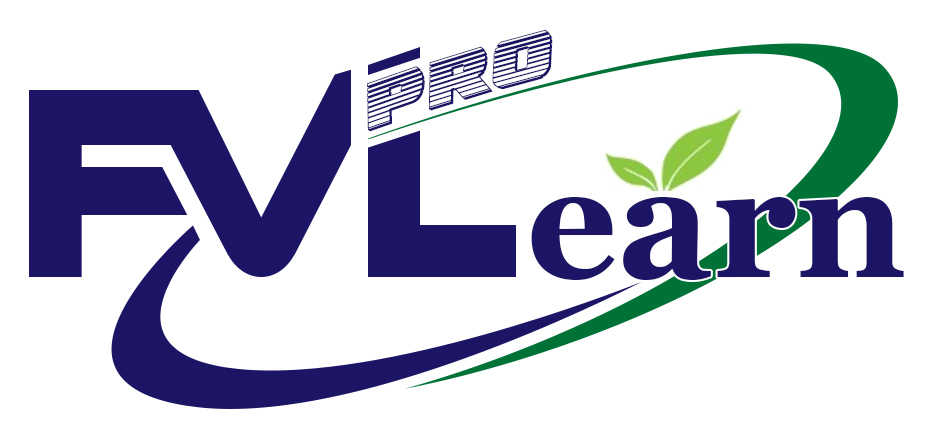The training on Priciples of Food Plant Sanitation has the following learning objectives,
- Food Plant Sanitation Introduction
- Cross Contamination and Sanitation
- Distinguish between cleaning, sanitation, disinfection, sterilization.
- Basic Food Microbiology and Sanitation
- Understanding Role of Chemicals – Detergents, Surfactants, Sanitizers
- Explore Modes of Sanitation
- Dry Sanitation, Wet Sanitation.
- Difference between COP, CIP, and Deep Cleaning.
- Role of Sanitary Design in Food Plant Sanitation
- Allergen – and Food Plant Sanitation
- Food Safety Pre-requisites Program and Sanitation
- Food Regulations and Sanitation
- Role of Inspections and Auditing in Sanitation.
- Food Plant Sanitation Monitoring, Verification and Validation
This training is completely self-paced, so you can begin at any time and set your own pace. Training duration is 30 days from signup/assigned date.
On purchase, or if company enrols you in a training, you will receive an email invitation to signup on the portal. Upon login you can access assigned/purchased trainings from "My Courses/Trainings" tab. You can access the trainings from any device with a live Internet connection. The training will work on a desktop, laptop, tablet, and smartphone.
Online trainings provide unparalleled convenience and flexibility. You can take the training anytime and anywhere; on any device you own.
You can email your instructor directly at training@foodvisioninc.com or utilize the training discussion board.
Currently trainings are offered in English language only.
Training is in audio visual format. You need to watch all the videos.
Trainee must have basic understandings of English language. Trainee must have a computer/mobile/tablet along with stable internet connection to attempt the training. Trainee must be familiar with basic use of computer.
Conceptual understanding from video lectures will be examined by an exam (where applicable) (multiple choice, true/false etc). You need to watch all the videos to complete the course.
Soft copy of test results (if applicable) will be emailed right after test submission. You can always access your current and previous results from your portal using your credentials.
Course completion/qualification certificates will be awarded to qualifying trainees right after course completion or exam submission through email. Trainees can download and print it later from their respective portals.
Full refund before the course is attempted, No refund will be processed if a candidate has started a course.
- TRAINING NAVIGATION INSTRUCTIONS
- Training Overview
- Module 1 – Introduction – Food Plant Sanitation?
- Module 2 - Microbiological Concerns in Food Plant Sanitation...
- Module 3 – Chemicals of Importance in Food Plant Sanitation
- Part 1 – Understanding the role of Soil and Deposits in food...
- Part 2 – Exploring Chemistry of Detergents
- Part 3 – Role of Sanitizer in food sanitation
- Part 4 – Facts about Sanitizers
- Lesson Learned
- Module 4 - Chemicals Safety and Precautions
- Module 5 – Essentials of Food Plant Sanitation
- Part 1 – Basics of food plant sanitation
- Part 2 – How to Clean and Sanitize? Step by Step
- Part 3 – CIP, COP, Manual or Automated Sanitation
- Part 4 – Confined Space Cleaning and Sanitation
- Lesson Learned
- Module 6 – Hygiene and Sanitary Considerations about facilit...
- Module 7 – Allergens and Sanitation
- Module 8 – Sanitation PPEs, Tools, Aids and Accessories
- Module 9 – Food Plant Regulations and Food Plant Sanitation
- Module 10 – Food Safety Fundamentals or Pre-Requisites and S...
- Module 11 – Building a Successful Sanitation Program
- Part 1 – A successful Food Sanitation Program?
- Part 2 – Activity and Area based Sanitation Implications
- Part 3 – Sanitation Verification
- Part 4 – Food Plant Sanitation Challenges
- Lesson Learned
- Module 12 – Role of Learning and Training in Sanitation
- Final Qualification Exam
FVPRO Learn
solutions@fvprolearn.com
FVPRO LEARN
Since 2000 !
Your Partner in food Business Excellence
A leading mentoring, coaching, learning, and auditing resource with its prime focus on “food business excellence”. We endeavor to nurture food safety cultural mindset through “TQM – total quality” approach and promote a food business environment that ensures first time quality.
